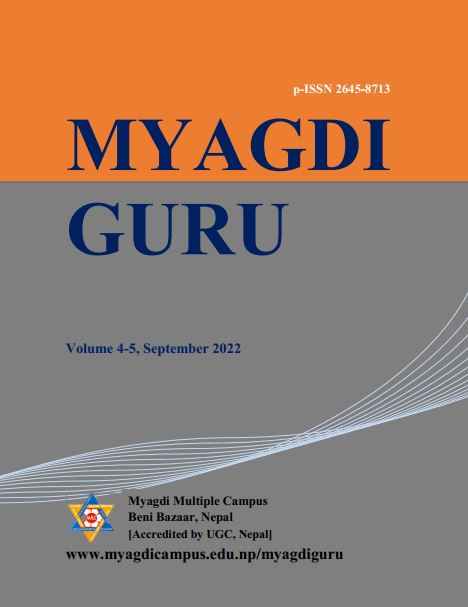Contributions of Nongovernmental Organizations in Local Social Development in Nepal: A Narrative Inquiry
DOI:
https://doi.org/10.3126/mg.v5i1.70619Keywords:
Nongovernmental organizations, Social development, NGOs’ contributions, social capital,Abstract
This paper, informed by social capital theory and a narrative approach, reports on a part of a study on the contributions of nongovernmental organizations to local social development in Nepal. The sampling frame consisted of 163 locally based NGOs implementing external donor-funded projects approved by the Social Welfare Council. The maximum variation sampling was employed to sample NGO executives for the semi-structured interviews (n=10). Likewise, local elected leaders (n=5) and government officials (n=3) were also interviewed. The findings reveal that NGOs’ efforts have not adequately addressed the material conditions, social cohesion, inclusion, and empowerment of marginalized communities. Lack of needs-based programs, short-term focus, political and ethnic diversity, elite influence, and restrictive operating rules and cultures have hindered NGOs’ contributions to local social development. The study contributes to the NGO literature by providing empirical insights into NGOs’ successes and failures in social development, leveraging social capital in Nepal. The findings offer practical implications for government, policymakers, donors, and NGOs to enhance the effectiveness of NGO-initiated social development programs.
Downloads
Downloads
Published
How to Cite
Issue
Section
License

This work is licensed under a Creative Commons Attribution 4.0 International License.
This license enables reusers to distribute, remix, adapt, and build upon the material in any medium or format, so long as attribution is given to the creator. The license allows for commercial use.




